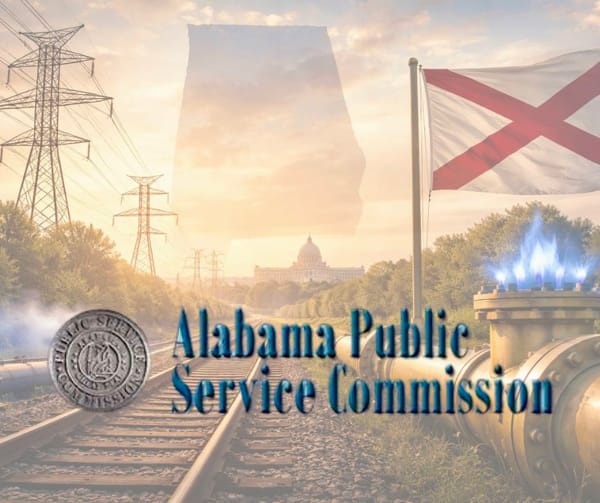Build a Better Alabama through Workforce Development
Guest Opinion by Dr. Nicole Jones Wadsworth

Guest Opinion by Nicole Jones Wadsworth, PhD, MBA, MS; Site Selector, Commercial Real Estate Developer, and Candidate for Lieutenant Governor of Alabama
Alabama has made much progress in workforce development; however, our journey has only begun. For too many years, business and education did not communicate effectively, which resulted in a deficit in many skilled trades – plumbers, electricians, welders, landscapers, etc. A lack of opportunities in some instances forced Alabamians to leave the state altogether in search of employment. Other times a lack of skills and/or jobs pushed able-bodied individuals into the welfare system, neither which yielded benefits to Alabama. The good news is that a myriad of industries – from aerospace, automotive, metals, biotechnology, chemicals, forestry and paper products, agriculture, defense, logistics, and more – exist in Alabama along with a business-friendly climate that positions our state well for growth. Stable employment can solve so many societal issues. My goal is to continue to recruit and retain businesses that rely on a quality and skilled workforce so that opportunity stays here at home.
The good news is, the Alabama Community College System (ACCS) has expanded career training and dual-enrollment opportunities, and the newly established Alabama Department of Workforce is actively working to attract new industries by training workers today for tomorrow's jobs. These efforts show what can happen when government, education, and business leaders work together.
Yet challenges remain amongst several groups, namely, rural residents, veterans, and high school students. Too many of our residents, particularly in rural areas, lack access to transportation, adequate broadband, nutritious meal options, and/or affordable childcare, all of which make career training difficult. The cycle of poverty becomes hard for some to escape if that is all they know. Veterans returning from military service often struggle to translate their valuable experience into civilian credentials. And many high school students still do not see a clear path from graduation to a good-paying job. Oftentimes young people "do not know what they want to be when they grow up" because they are unaware of opportunities or do not have mentors guiding them to help navigate paths to employment. Alabama can and must do better.
We can start by strengthening career pathways in high schools. Every student should graduate with a skill, certificate, or apprenticeship experience that leads directly into the workforce. By expanding dual enrollment, transportation options, and hands-on internships with local employers, we can ensure that young people across our 67 counties have access to opportunities close to home.
Our trade schools and apprenticeships continue to grow. Alabama can incentivize small businesses to take on apprentices through wage-sharing or tax credits. More colleges can work to connect apprenticeships or internships to college credit (for example, three credit hour classes, thesis options, research, etc.) so that existing workers can build on their experience and earn degrees without starting over.
At the community college and university levels, we need to continue to develop more stackable credentials—short, job-ready programs that count toward higher degrees. For example, some schools are developing bridge programs so students can advance from Certified Nursing Assistant (CNA) to Registered Nurse (RN) professions. Prior learning assessments should be more flexible to give credit for military and workplace experience, so veterans and seasoned workers are not forced to repeat what they already know. Mobile training labs can bring these programs directly to communities where the need is the greatest.
For veterans coming home from active duty, Alabama should fast-track the translation of military occupational specialties into civilian certifications. We must meet veterans where they are at. These men and women have been through enough serving our country; government needs to go to them, not the other way around. By offering on-site training opportunities and outreach at veteran centers and community locations, we preserve their dignity, restore a sense of purpose, and reduce the risk of homelessness. Partnerships with defense contractors, manufacturers, and healthcare systems can ensure veterans are quickly placed into meaningful employment.
Finally, to reach rural residents living in poverty, we must go to them. Mobile classrooms, community-based training sites, and wraparound supports such as childcare, housing, nutritious meals, and transportation can help families break cycles of poverty and build sustainable livelihoods.
The data points are clear: when people gain skills that match employer needs, communities thrive. When high schools, trade schools, community colleges, universities, employers, and veteran organizations align under one coordinated vision, Alabama can build a workforce prepared for both today's jobs and tomorrow's innovations.
As Lieutenant Governor, I will work to strengthen these partnerships and expand access to training. I will build upon what the current lieutenant governor's administration has done to help make Alabama one of the most veteran-friendly states in the nation. Ultimately, I want to ensure that every Alabamian — from the high school student to the veteran — has the chance to contribute to and benefit from our state's growing economy.
Alabama's best days are ahead, and the foundation of that future is our people. Together, we can build a workforce that reflects the strength, resilience, and ingenuity of Alabama itself. Let's invest in our people and put Alabama First.
Dr. Nicole Jones Wadsworth
President, Jones Wadsworth
Republican Candidate, Lieutenant Governor of Alabama, nicoleforalabama.com
Opinions do not reflect the views and opinions of ALPolitics.com. ALPolitics.com makes no claims nor assumes any responsibility for the information and opinions expressed above.




